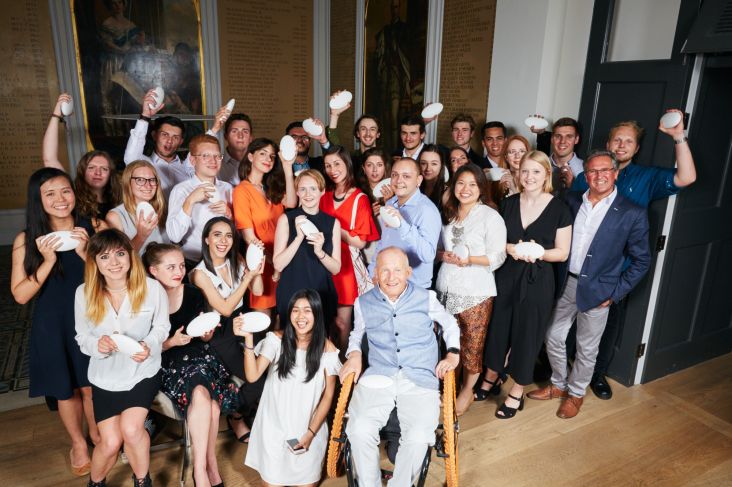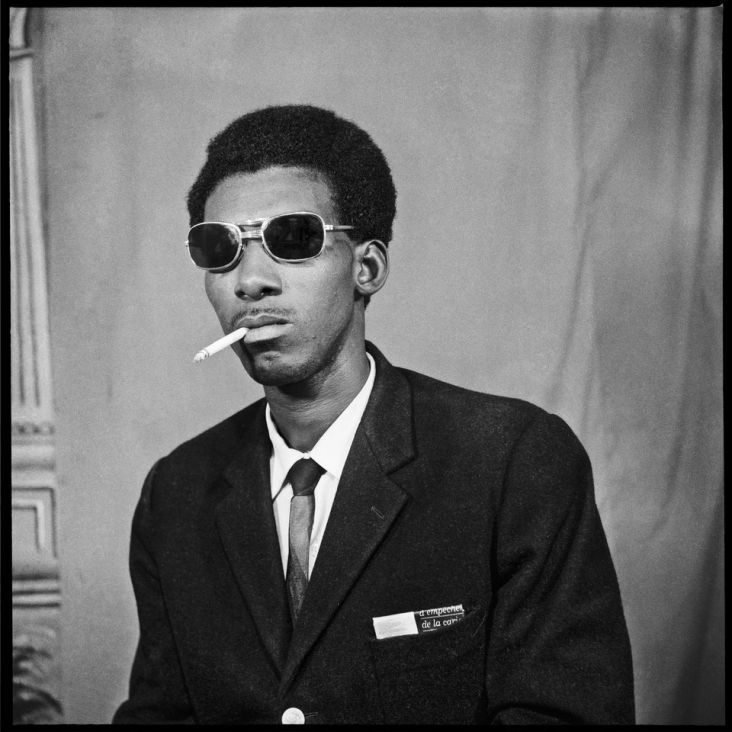Kimberly Brooks on the love of painting, switching off and the language of fashion
This month, Los Angeles-based American painter Kimberly Brooks returns with Brazen, her latest exhibition which will run at Zevitas Marcus in Culver City until 28 October. Taking cues from the current socio/political climate, her new work moves in a more abstract direction, reimagining her visual style, but never losing her sense of self as an artist.
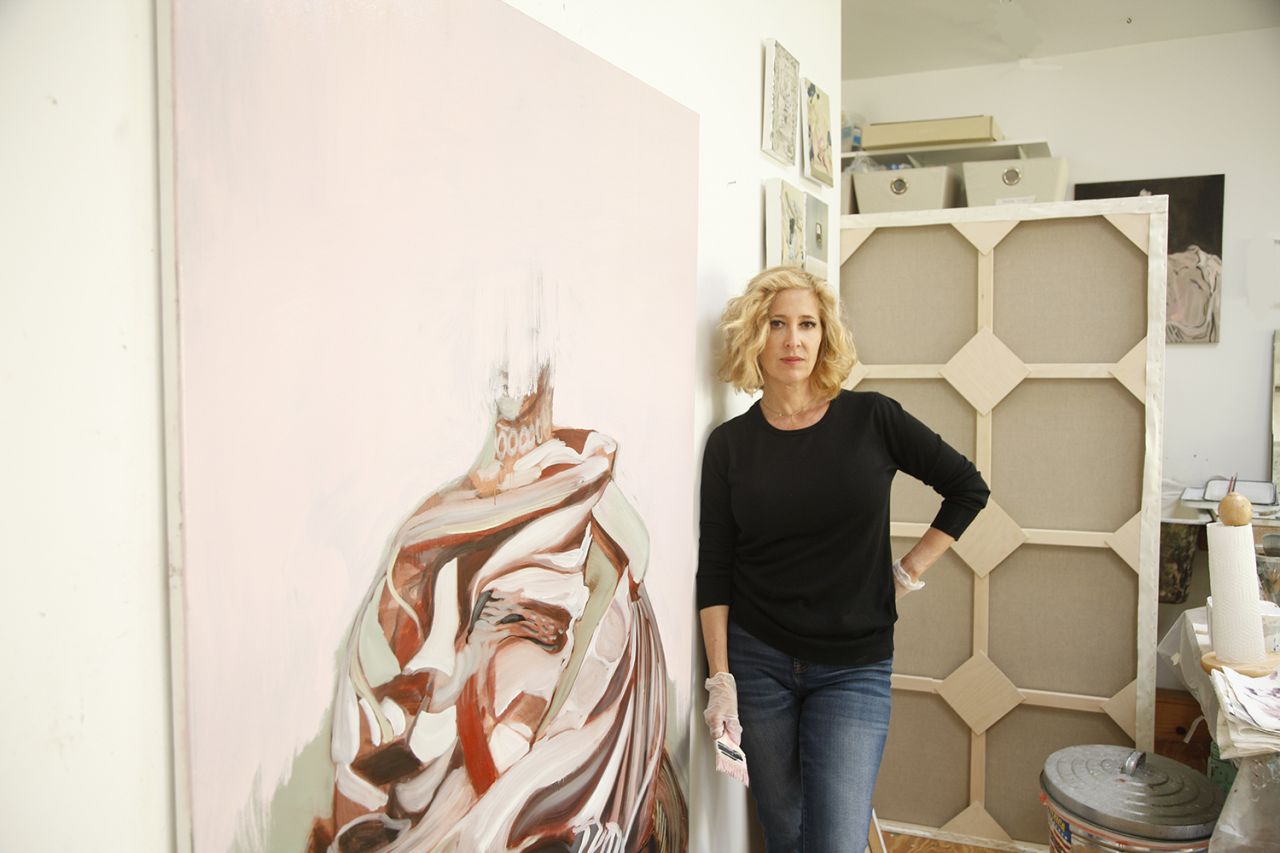
Kimberly's work deals with the subjects of memory, history, and identity. It's these ideas that connect her present work to past series such as Mom's Friends, The Stylist Project and I Notice People Disappear.
Her art has been showcased in numerous juried exhibitions including curators from Whitney Museum of American Art, Museum of Modern Art, California Institute of the Arts and Los Angeles County Museum of Art. We spoke to Kimberly about her latest exhibition, her life and her career so far.
Is it true you worked as a writer before becoming an artist?
I was always the sketchbook-toting kid making art but yes for work, my first job was a speechwriter in the design industry. Yet I always worked as an artist in some form or another. Writing as a medium ramped up in the middle of my art career when I started interviewing artists for a weekly column I started called First Person Artist. I think the mediums of painting and writing have a lot in common. Writers just paint with words.
What inspires you?
A little bit of everything. Sometimes other art, other times the way sunlight falls on tree limbs and other times the way rust might look on the side of a turquoise van.
Is there a special someone who has influenced you?
I was incredibly influenced by my father, Leonard Shlain, who not only was a great dad but took me to museums at a young age and had me edit his book Art and Physics all through college. Art, art history, seeped into my veins because of him.
You have a love of portraiture. Would you say you have a certain style?
I love portraiture because I love art as a way of understanding human nature. Art allows me to improvise and idealise simultaneously. I used to be very exacting when I painted people to flex or prove my technical prowess. Now I’m happy to say I haven’t fretted over an eyelid or a mouth in years.
Fashion and women play an important role in many of your artworks. Why is that?
I see fashion as just another language of art, however ephemeral. Fashion to me seems like a quark in physics, only lasting for a moment in time, but is also a building block of the universe.
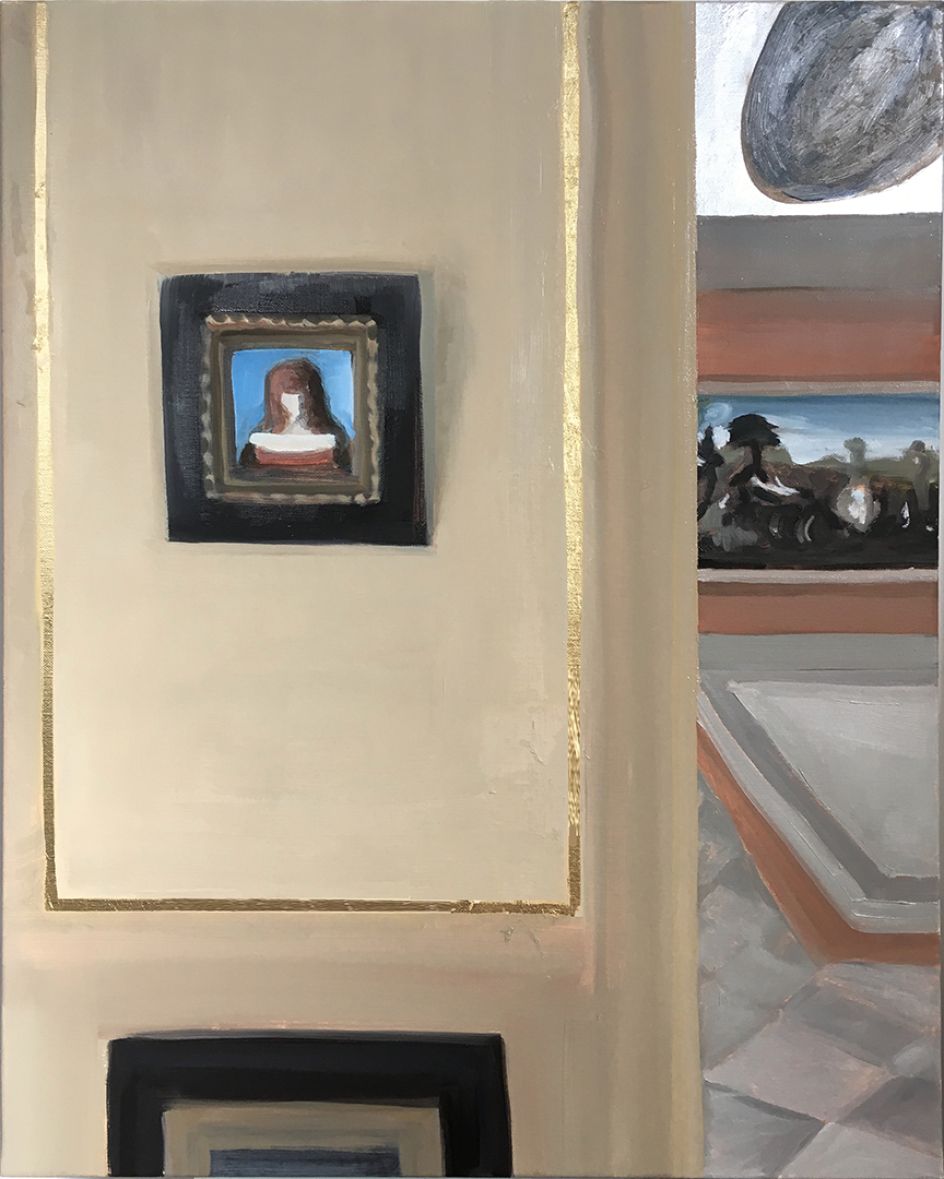
Near & Far | Kimberly Brooks
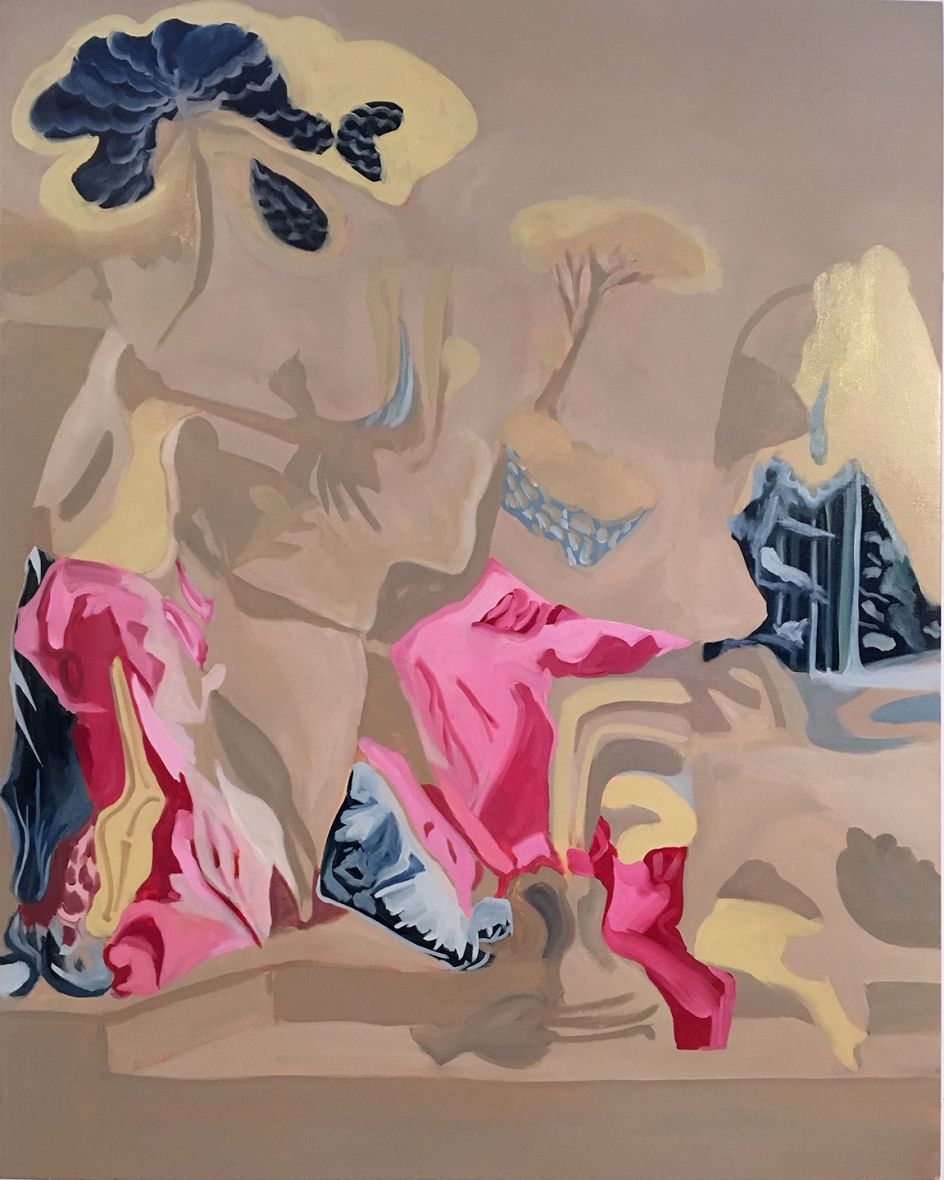
Blue Forest | Kimberly Brooks
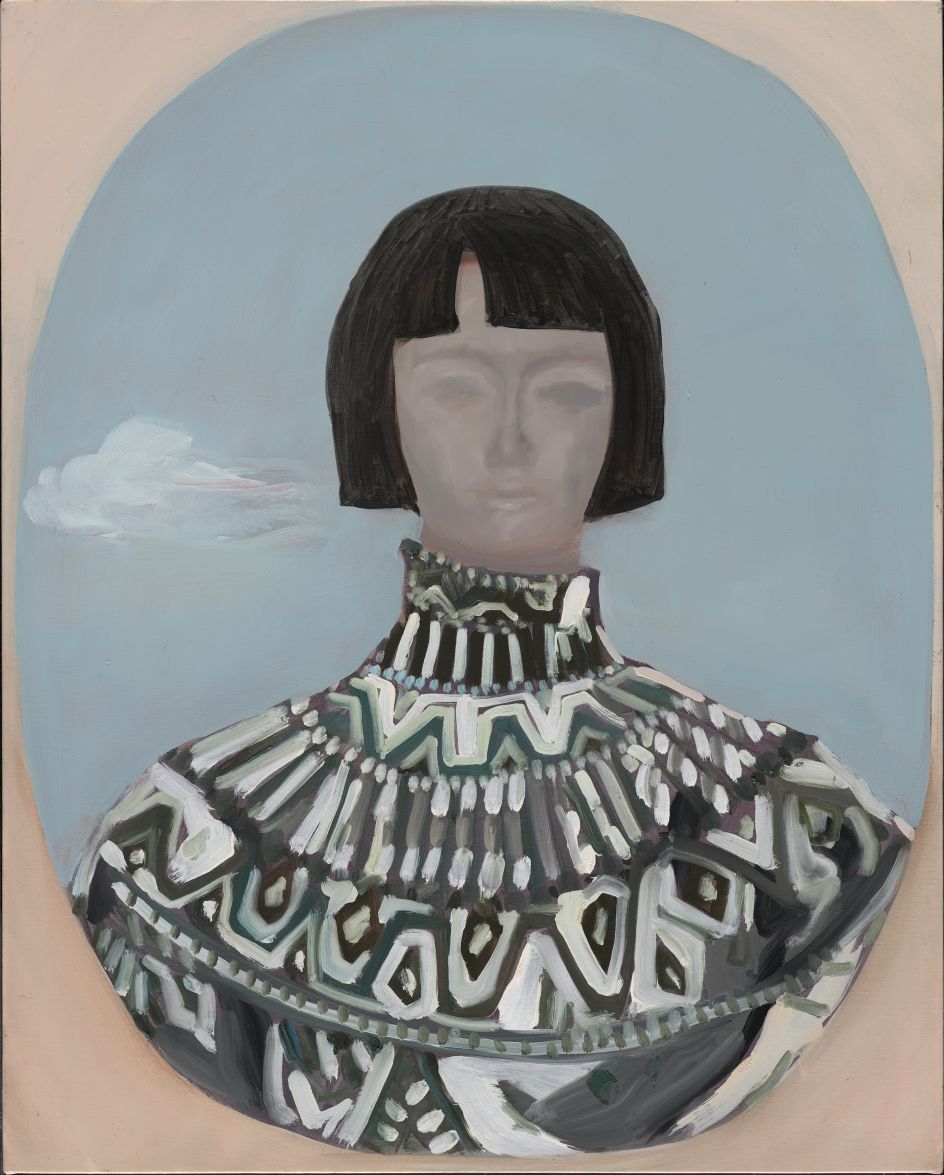
Talitha | Kimberly Brooks
We loved The Stylist Project – how on earth did you choose your subjects?
I originally created a list by pulling the mastheads of the magazines for the most famous creative directors and stylists who I would ask to style themselves and sit for their portrait. I presented the list to each subject after a sitting, and they would look at it and say, 'Oh you don’t want this person, you want that person'. It, therefore, ended up being curated organically by the subjects themselves.
You have a new show, Brazen. Tell us more.
I've been on a path toward abstraction for quite some time now. I started this newest body of work right after the inauguration and I felt that the world had become a reckless place. I thought of the sheer audacity of art-making at a time like this or making art at all. I dwelled on what it meant to make art throughout history and the grandiosity associated with it. I started gilding the work by incorporating gold and silver leaf for the first time. In creating this body of work, I was reacting and breaking into something new simultaneously.
How is this new series different from what you’ve painted before?
There is a certain meta aspect where I am incorporating paintings of paintings. But the abstraction stays inside the frames.
We love that interiors still play a part.
I still find interiors endlessly intriguing for so many reasons, for what they can evoke about the people who created/designed them, and also the way they offer a vessel for the viewer to fill in his or her own story.
You’re the person behind The Creativity Notebook. How did this come about?
As a painter and a human being, I noticed that many of the technologies meant to make us more efficient keep making us less so. I am convinced that, even if one still has a digital system, incorporating mark-making to keep track of our time and ideas is infinitely more valuable and pleasurable when committed to paper.
I also think incorporating art of any kind into one’s calendar provides visual scaffolding to mark one's sense of time. People who use the system swear by it and I hand-make them in my studio for people all over the world.
Aside from this, how do you stay focused? Are you easily distracted?
I suppose being obsessed is a form of being focused. Certain ideas or materials obsess me. Painting has long been an obsession of mine. After years of being intoxicated with technology, I’m fatigued and wary of it. I often lock my phone in my car when I’m at the studio where I just have a stereo, my paints and canvases to keep me company.
What do you find to be the most challenging aspect of your work?
There is a certain moment when my work goes from private to public. At that time, if I’m making a big change, I wonder, how it will be received? Then I feel as though I’m diving into the unknown. I’m grateful to have wonderful people and publications like yours to give oxygen to the new work and appreciate it.
Brazen will run until 28 October 2017 at the Zevitas Marcus gallery in Los Angeles. To find out more about Kimberly, visit kimberlybrooks.com.
All Images © 2017 Kimberly Brooks. All Rights Reserved




 by Tüpokompanii](https://www.creativeboom.com/upload/articles/58/58684538770fb5b428dc1882f7a732f153500153_732.jpg)


 using <a href="https://www.ohnotype.co/fonts/obviously" target="_blank">Obviously</a> by Oh No Type Co., Art Director, Brand & Creative—Spotify](https://www.creativeboom.com/upload/articles/6e/6ed31eddc26fa563f213fc76d6993dab9231ffe4_732.jpg)









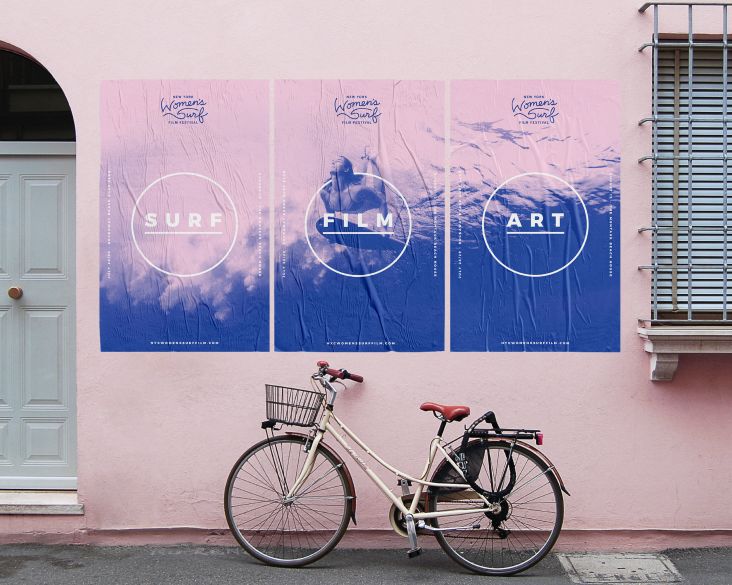
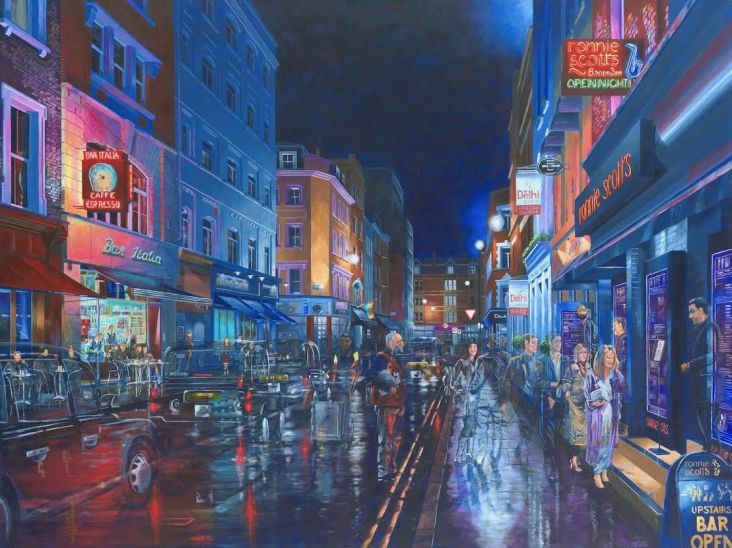
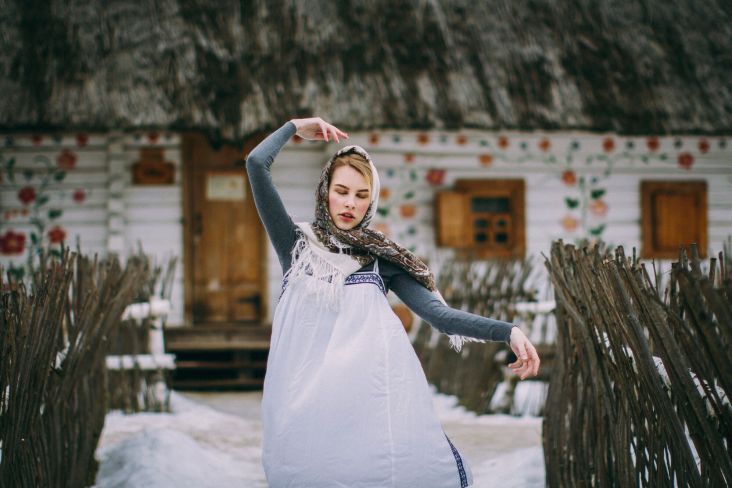
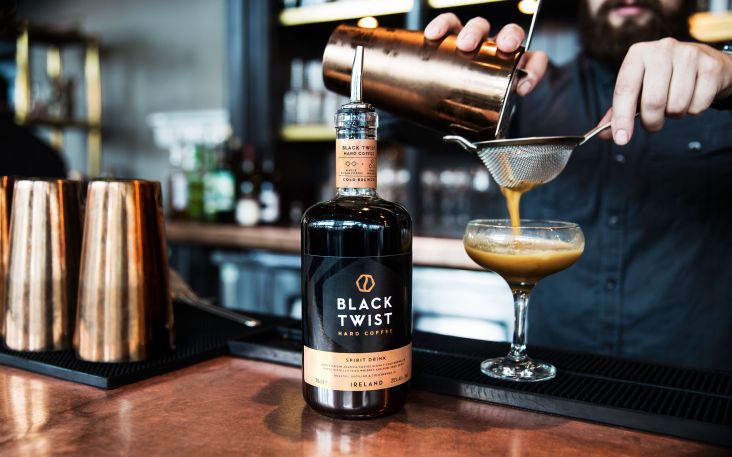
](https://www.creativeboom.com/upload/articles/b2/b21ebf83f336571da7800d73903805ef881eaaaf_732.jpeg)
